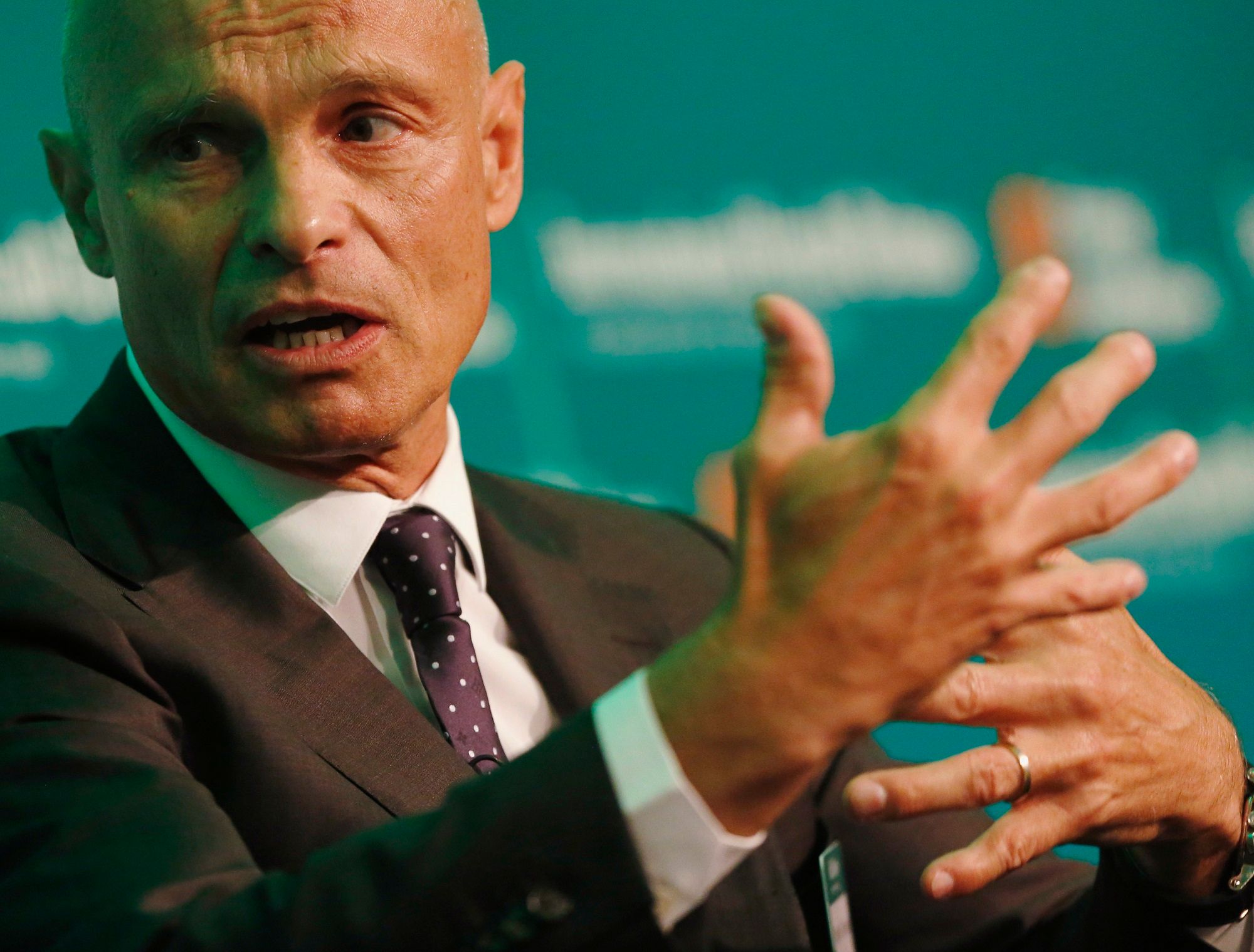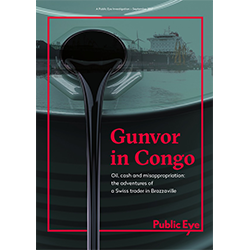“They’re in a tight spot!”
Gunvor’s escapades in Ecuador have been followed closely by the industry in Geneva. After the Geneva-based trader corruption conviction in the oil markets in Congo-Brazzaville and in Côte d’Ivoire in October 2019, numerous people interviewed by Public Eye said that it feels like a badly made remake, with undoubtedly far more severe consequences.
“This time, the Americans are going full throttle and it could lead to a very, very large fine. They’re in a tight spot!” considers a lawyer who works in the sector. Following the scandal in Africa, the trader was ordered to pay a total of CHF 94 million (CHF 4 million as a fine and CHF 90 million in compensation payments). Public Eye had been documenting the scandal since 2017 in its investigation Gunvor in Congo.
Report: Gunvor in Congo
Oil, Cash and Misappropriation.
The adventures of a Swiss trader in Brazzaville.
A story in six acts.
The sums skyrocket
The scale of the Ecuadorian scandal hits home.
“70 million in commissions, of which 22 million went to Ecuadorian officials. It’s huge – much bigger than Congo-Brazzaville”
exclaims a trader, who estimates that this time it will be much harder for Gunvor to sell the story that a rogue employee had acted alone, duping his superiors, in making such significant payments.
A former Gunvor employee ended up by pleading guilty, forced by the FBI who had recorded his conversations. He gave details of corruption pacts and pointed the finger at his superiors. When it was published, the US criminal complaint underlined that, within the trading house, “other people […] were aware that the payments would be used, at least in part, to pay bribes to Ecuadorian officials.”
The chain of responsibility has yet to be determined. In Geneva, some have invented theories relating to Gunvor’s senior leadership, whose names already cropped up in the Congolese scandal without facing sanctions, like the manager of the crude oil department and the manager in charge of Europe and Asia. Or, in the case of Ecuador, the person in charge of Finance in Singapore at that time.
According to the US judiciary, it is from Singapore that Gunvor set in motion the payment of phenomenal commissions destined to Ecuadorian business introducers. The millions were allegedly deposited into bank accounts in Switzerland, Panama and the Cayman Islands, then part of it was transferred back to Ecuadorian officials.
 ©
Reuters
©
Reuters
The banks get jittery
Several banks that fund Gunvor are becoming nervous. “Does Gunvor’s leadership never learn? It’s shocking!”, said a banker, alluding to the big boss – Executive Director Torbjörn Törnqvist who never faced any issues off the back of the scandal in the Congo either.
Contacted by Public Eye, Gunvor limited itself to sending a generic message regarding banking compliance standards, stating that it has a “zero tolerance” approach towards corruption and as a result the “company has also banned outright use of agents for business development purposes”. Gunvor claims that it fully cooperated with the US judiciary.
As a logical consequence, the Swiss judiciary should also show renewed interest in the case from a reoffending standpoint.
At the time when Gunvor was being investigated by Switzerland for its activities in Congo-Brazzaville and Côte d’Ivoire, business was booming in Latin America, thanks to the use of similar practices. Contacted, the Office of the Attorney-General stated that it would “not comment on the status of this new case”.
Scalded in Africa, now blacklisted in Ecuador and in a tight spot in the United States, Gunvor – which has just announced fantastic financial results – a turnover of USD 50 billion and profit of USD 320 million in 2020 – could be forced to look elsewhere. In late March, Torbjörn Törnqvist told Reuters that he wanted to relaunch his oil business in Russia “We are getting more oil there” he said. This is a return to the source that could be accelerated under the current circumstances.
Agathe Duparc


